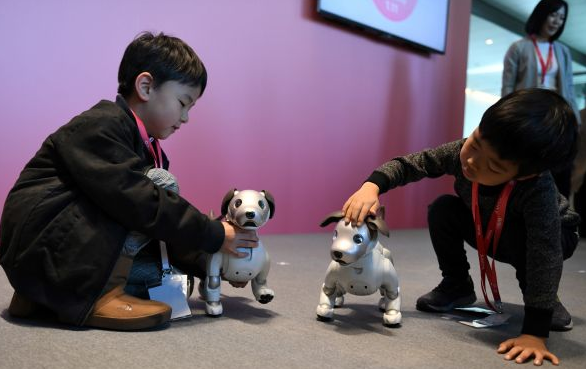Sony's core strategy for business reconstruction has always been centered around innovation, a principle that has long been emphasized by engineers and technicians in Japan. In the past, engineers who could achieve original innovation were highly regarded. According to reports, since 2016, major Japanese manufacturing companies such as Hitachi, Toshiba, Panasonic, and Fujitsu have started to shift their policies.
The primary reason behind this change in policy is the rise of the Internet of Things (IoT). Rather than focusing on developing entirely new technologies, these companies are now prioritizing the improvement of existing products or finding new applications by combining current technologies to better meet customer needs. This shift highlights the growing importance of practical solutions over pure technological invention.

For instance, in the 2016 fiscal year, Hitachi significantly revised its talent recruitment criteria. The company increased the number of action-oriented individuals who are more mobile and adaptable than purely analytical thinkers. It also placed greater emphasis on value-creating talents. The goal was to encourage new employees to focus on identifying problems and markets while proposing their own solutions. This new approach remained in place through the 2018 fiscal year.
Nakao, director of the technical talent strategy department at Panasonic’s CTO room, cutting-edge research headquarters, and general affairs department, noted that with many key technologies now available online, it has become easier for technicians to work in such an environment. However, the company now values individuals who continuously explore and innovate to deliver real value to customers, even if they make mistakes and can quickly adapt and correct them.
Fujitsu, which is primarily focused on IT systems and software, has taken a more direct approach. With a wealth of existing code available—both in public networks and internal company systems—the ability to write new code from scratch is still important. However, the company now places more emphasis on the ability to combine and streamline existing code to extract maximum value from current programs.
Most IoT applications rely on the combination of existing hardware and software to meet customer needs. From the customer’s perspective, business value lies not in new technology or products, but in how effectively they can be used to solve real-world problems.
However, one area where existing software and hardware can create significant value is artificial intelligence (AI). The data collected by IoT devices must be analyzed using AI, which is why Japanese manufacturing companies are expanding their recruitment efforts to include AI talent. Panasonic, for example, plans to hire 300 AI professionals in the 2018 fiscal year, with a goal of increasing that number to 1,000 as soon as possible to develop its own AI capabilities.
According to a source cited in the report, in the past, the talents hired by Japanese motor factories often had similar educational backgrounds and shared similar values and personalities. This homogeneity is now being challenged. The future will belong to individuals with innovative thinking who can identify customer needs and provide creative solutions, replacing those who focus solely on specialized research within a single field.
Explosion Proof Motor,Explosion Proof Servo Motor,Exproof Motors,Explosion Proof Ac Motor
Yizheng Beide Material Co., Ltd. , https://www.beidevendor.com
